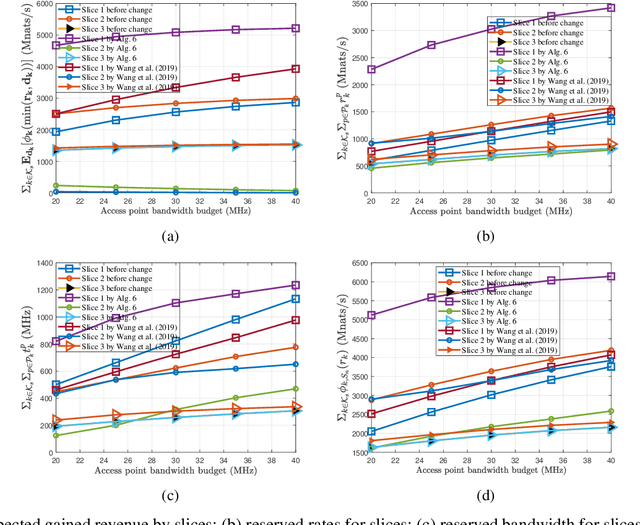Data-Driven Adaptive Network Slicing for Multi-Tenant Networks
Paper and Code
Jun 07, 2021



Network slicing to support multi-tenancy plays a key role in improving the performance of 5G networks. In this paper, we propose a two time-scale framework for the reservation-based network slicing in the backhaul and Radio Access Network (RAN). In the proposed two time-scale scheme, a subset of network slices is activated via a novel sparse optimization framework in the long time-scale with the goal of maximizing the expected utilities of tenants while in the short time-scale the activated slices are reconfigured according to the time-varying user traffic and channel states. Specifically, using the statistics from users and channels and also considering the expected utility from serving users of a slice and the reconfiguration cost, we formulate a sparse optimization problem to update the configuration of a slice resources such that the maximum isolation of reserved resources is enforced. The formulated optimization problems for long and short time-scales are non-convex and difficult to solve. We use the $\ell_q$-norm, $0<q<1$, and group LASSO regularizations to iteratively find convex approximations of the optimization problems. We propose a Frank-Wolfe algorithm to iteratively solve approximated problems in long time-scales. To cope with the dynamical nature of traffic variations, we propose a fast, distributed algorithm to solve the approximated optimization problems in short time-scales. Simulation results demonstrate the performance of our approaches relative to optimal solutions and the existing state of the art method.
 Add to Chrome
Add to Chrome Add to Firefox
Add to Firefox Add to Edge
Add to Edge